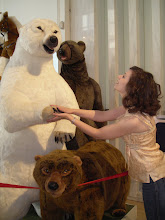 |
| Luminous, pensive portrait from Dr. Jekyll & Mr. Hyde (1931) |
In my mid-teens, to be the best possible steward of my junior high-era eccentricities, I kept copious lists. One list documented the mediocre melodramas that made me cry. Although included on the last, The Barretts of Wimpole Street (1934) didn't actually incur sobs. It incurred swooning, and I listed it on romantic principle. Elizabeth Barrett! Robert Browning! Mid-nineteenth century drawing rooms! The premise of their romance appealed to me: here a shut-in poet, borrowing from the Rapunzel archetype, created eloquent verses that brought forth this unbounded debonair prince -- who, in retrospect was merely an enthusiastic poet. It was a perfect romance for a sentimental, friendless teenager. Yes, I say: perfect.
 |
| How do I love thee? |
Another pre-code confection is Design for Living (1933) a superior piece of film (Lubitsch!), if only for providing documentation of Fredric March in the second most handsome tuxedo in all cinema (after the unrivaled Fred Astaire). But there's more! The famous stage play had a inhibition-less romantic plot that included a perceptible homosexual subtext. The film version was slightly subdued, but still a saucy story for the early 1930s.
Even later in his career, Fredric March knew that the story was best served by characters, not necessarily heroes, and that's illustrated by his role as a fundamentalist politician in Inherit the Wind (1960). Some of his other roles I most appreciate are: A Star is Born (Mrs. Norman Maine!), Nothing Sacred and The Best Years of our Lives.
 |
| Nothing Sacred (1937) |
"To me characterization is the whole fun of acting. Every part is a character part." -- Fredric March
Shelley Winters remembered: "He was able to do a very emotional scene with tears in his eyes, and pinch my fanny at the same time." (Their film together: Executive Suite).
Fredric March, about Richard Burton: "He has a terrific way with women. I don't think he has missed more than half a dozen."
And my favorite: When March's 1938 return to Broadway in "Yr. Obedient Husband" was a resounding failure, he and [co-star and wife]Florence Eldridge placed an ad in the trades that showed a sketch depicting them as two trapeze artists missing each other's grip in midair. "Oops. Sorry." read the caption.
